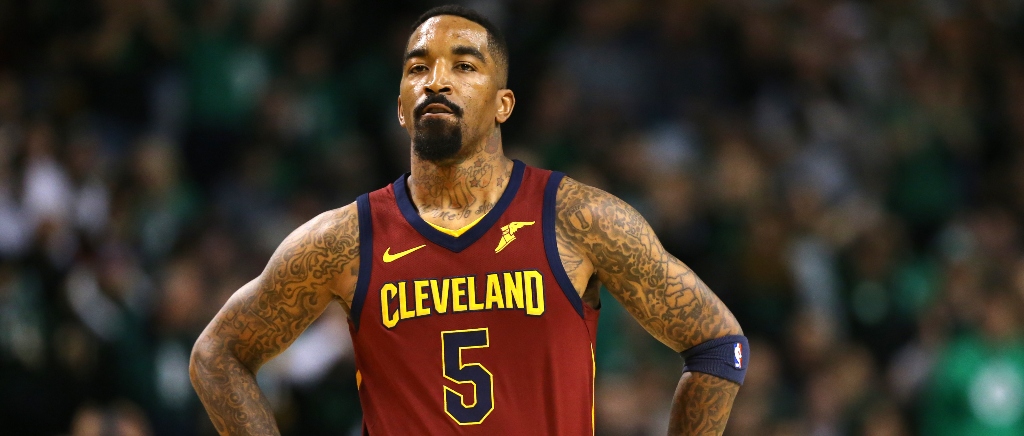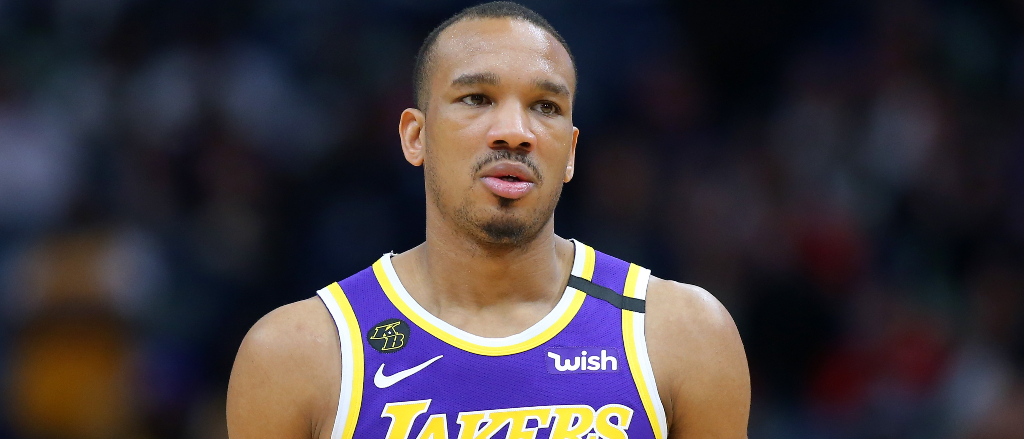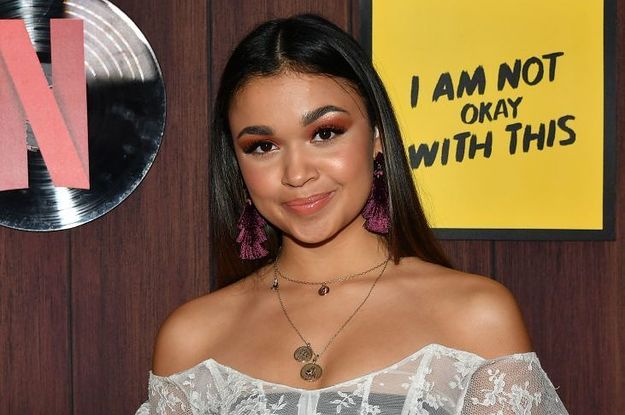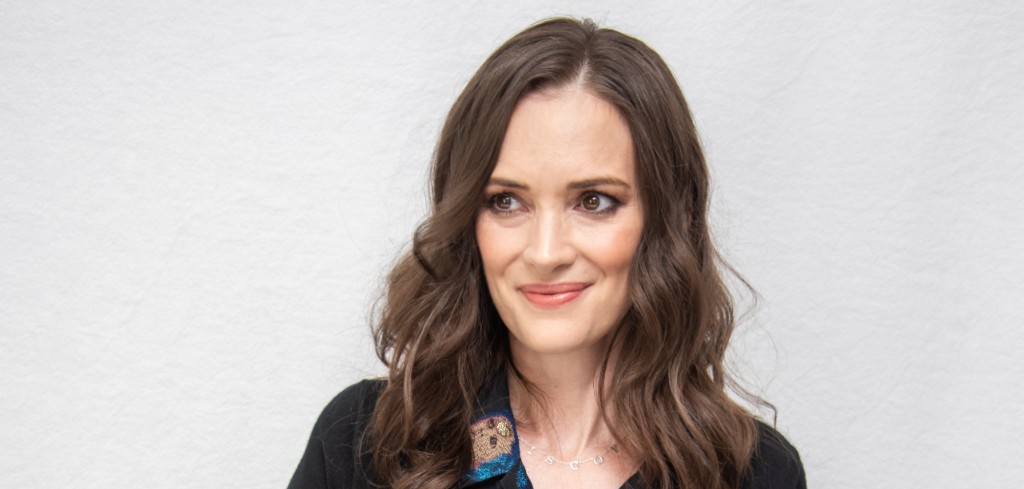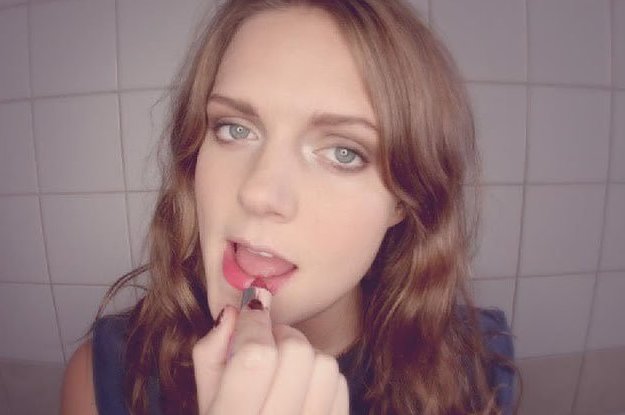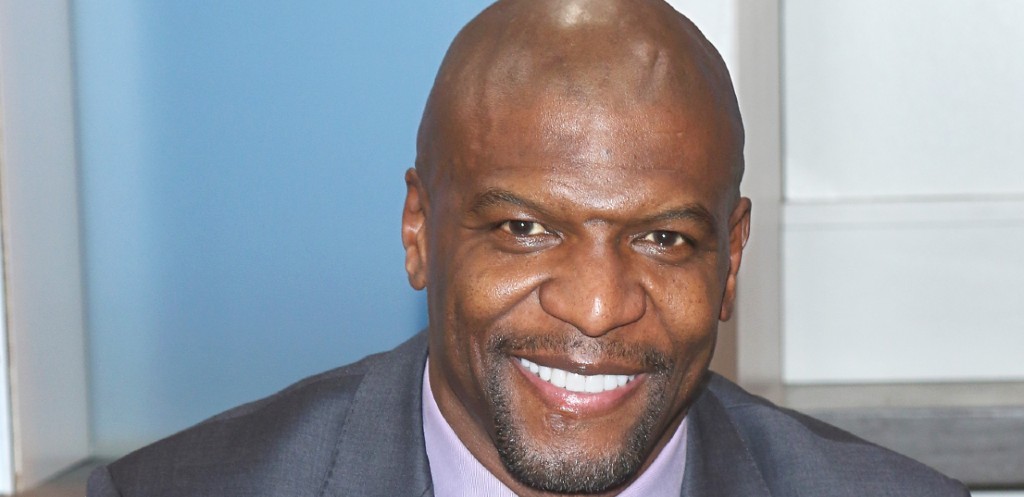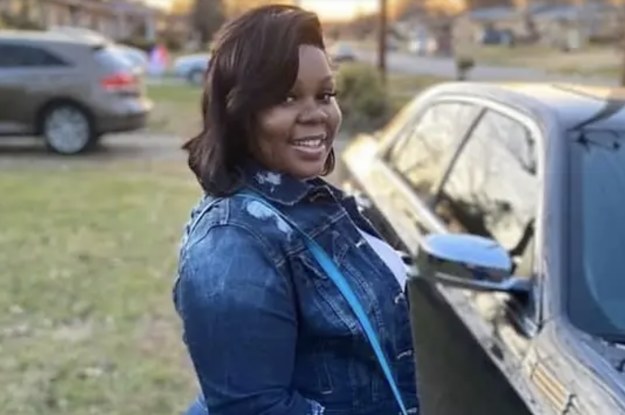I feel like I grew up with Joel McHale, in a way. The Soup, which he began hosting in 2004, was a lodestar in the aughts, a beacon of absurdity guiding us through the soul-sucking amorality of the era. It seemed like the entire world had lost their minds, but at least we could laugh about Kardashians and the cat who ate spaghetti.
Then he was in Community, playing a character he says everyone assumed was just himself even though it wasn’t, for another show that was beloved by millions but never quite made it to the mainstream. McHale is kind of hard to pin down like that, a host, an actor, a comedian — perennially inspiring a cult kind of fandom. Every few years he’ll show up in some kind of dramatic role and be great (see: The Informant!) but people will forget about it and he’ll end up with another semi-obscure hosting gig, or show up on someone else’s talk show or podcast and be the best guest they had that year.
I get the sense that McHale reads “regular guy who sometimes slides into dramatic stuff” to the general public, but he actually has the chops. He finished the acting MFA program at the University of Washington after being a tight end on the Huskies scout team for two years as an undergrad. He just happens to be chill enough to also enjoy stupid humor.
Which I guess is what makes him feel relatable. Not to get too inside baseball, but I frequently find myself planning my interviews by dreaming up the dumbest questions I can think to ask a particular person. Sometimes it goes badly and the person thinks I’m making fun of them rather than myself (there’s a lot of nuance and intentions that goes missing over the phone); other times the person sounds so serious I can’t bring myself to ask it (see: Guttenberg, Steve). With Joel McHale, I asked the dumbest questions right out of the gate and never worried about offending him. Being the Guy Who Will Play Along seems intrinsic to McHale’s brand.
This month he was promoting Becky, in which he plays a dad whose house gets invaded by an escaped con played by Kevin James with a swastika on his head. Nazi Paul Blart, how’s that for a hook? It’s a movie that tries to compensate for its largely nonsensical plot with excessive gore — which isn’t the worst idea in the world. It’s probably not the greatest showcase for Joel McHale’s acting talent either, but hey, at least it gave me the chance to talk to a guy who helped keep me sane in the Bumfights era. I asked McHale about the legacy of The Soup, whether he suffers from not having a consistent brand, and whether Chevy Chase is really as much of an asshole as everyone says.
—
So Kevin James plays a Nazi in this movie. Was he pretty method on the set?
Well, he was definitely prepared. He wasn’t method. I mean, he wasn’t walking around all the time pretending to be a white supremacist, that would be really weird. But he was definitely prepared and really good. He’s wonderfully scary when the camera was rolling and it was one of those things where people were like, “Was it a scary set? Was it weird? Was it dark?” It’s supposed to be so different than a comedy set. It is one of those things where we all know that this is a serious scene, but that doesn’t mean it’s not really fun to make.
Did you ever corner Kevin and try and figure out how you can get a piece of that Adam Sandler money?
Oh yeah. No. I held him down at gunpoint and said, “Son of a bitch. What the hell? I was in Blended, but I’d like something bigger than Blended. So what are you doing for me?” But so far, he hasn’t gotten back to me and I’m sure his security guards would try and kill me. Which they should. I’m a threat.
If you guys were still making The Soup in 2020, what shows you think would be on it?
Geez, there are so many. I think at this point we would have expanded to YouTube and things shared on Instagram, things on Reddit and I think local news would be getting a lot of traction. There’s still the Kardashians, but it’s much more polished than it used to be and there’s not a ton of, like Britney Spears-and-Kevin Federline-with-their-own-cameras. There’s less of that stuff, like when Whitney Houston or Being Bobby Brown was a show, which was just… I mean, God rest her soul and her daughter’s soul, but that show was just bonkers. And there’s not as many like that, but still, all the time there’s crazy stuff. We tried that show on Netflix [The Joel McHale Show With Joel McHale], and I wish they had hung in there with it for a little while longer to see if it that habit would catch on, but I was happy to be at Netflix and honored that they picked up the show.
It seems like they’re still trying to figure out how to do like appointment viewing for streaming services.
Yeah, I don’t know why. They don’t need to. They got all the money and they got all the hype and the momentum. So I mean, this COVID thing is terrible and awful and I can’t wait for it to be over, but if you’re a streaming service, they must be drinking Dom Perignon every night.
You’re kind of selling me on the concept of a 2020 version of The Soup. But do you think that the kind of absurdity that The Soup thrived on, does that still work now or is reality too absurd?
No. I would say if anything, reality has refined itself because they have these shows down to a science now. When reality shows really caught on and one of the reasons why they caught on so well is because they were so inexpensive. That continues to be the case so there’s no shortage of crazy stuff being put on. I mean, Love Island is a really good example. And I feel like when people say, “Well, no one’s watching TV anymore.” I’m like, “No, no, no. Everybody‘s watching. They’re watching more than anyone has ever watched. It is all people do. If they leave the house without their phone, they might as well have said, what happened? I forgot my right hand.”
You know, it’s a constantly changing, moving target, but I’m definitely not of the ilk, “There’s nothing crazy anymore so there can’t be a show.” It’s crazy all the time. John Oliver does an incredibly good job at finding clips. It’s pretty astonishing what he does. And so, I would definitely say he’s a good example of a staff that is finding incredible stuff.
Do you guys ever have Soup host reunions?
No. Well, I just did a show with… oh God what’s her name…
Aisha Tyler.
Oh my gosh. Yeah. Aisha. But that was for something else. And she is an impressive human being and her career is no joke. She’s awesome. And I really, really like her. And she doesn’t have to be as kind as she is for as accomplished and brilliant and beautiful as she is. But no, we’ve never had a host reunion. I’ve only met Kinnear once and John Henson, I had lunch with years ago.
But it was friendly with both those guys?
Yeah, it was great. At the time, Dennis Quaid was with Kinnear, and Dennis Quaid recognized me before Kinnear did. And he kind of had to explain who I was. Clearly, Kinnear was not following the show. To his credit, he was making movies and getting Oscar nominations at the time, so I don’t blame him.
If you guys have a tug of war between the past hosts of The Soup and the past hosts of The Daily Show, who do you think would win?
Oh, well that’s a good question, because Craig Kilborn is like a six foot six basketball player. I’m pretty large. Aisha’s pretty tall. I don’t know what kind of an athlete Hal Sparks is, but John Henson, he’s like six four…
Oh, is he really?
…Boy. Obviously, if you had the Daily Show, I mean, Jon Stewart’s probably cagey. You probably don’t think he’s a badass, and then all of a sudden you’re like, “Holy crap.” So I think it’s hard to tell. I mean, if you throw in all the correspondents then The Soup would definitely lose, but I don’t know. I’m set on us.
That’s good. It’s good to be confident. Do you feel like you do so many things that casting directors might not know what to do with you? You’re kind of like a host, you’re kind of a comedian, you’re kind of a dramatic actor…
I’ve not run into that. I mean, maybe it could. I know that my agents sell me on stuff and people go, “Oh, I hadn’t thought of that.” And so I know that’s the case, but I think because The Soup gets me notoriety as in myself as opposed to acting, but then it really came on with Community. A lot of people were like, “Well, Community is just you,” which was really not the case. So I take it as it comes and like getting to do a movie like Becky or Assassination Nation or Twilight Zone coming up, I love it all. I really do. Hopefully, they stay open to considering me. And if they don’t, then I will make their life hell! No. I really just love performing. I love acting. I love stand up. I love doing the podcast. …So basically I need attention all the time. I’m a golden retriever. I’m just a big golden retriever of a human being and it’s just my cross to bear.
To me, it seems like you’ll be in something dramatic and you’ll get really good reviews and then people will forget about it for a couple of years until you do something again. Is that you not getting those calls or is that you just picking other projects?
Well, with a movie, if the movie doesn’t do great, people don’t really remember it anyway. If you’re in a movie that gets really good reviews and actually gets some award buzz, that can help. But if you don’t get the award buzz, then it doesn’t help. So it’s all over the map as far as how that works. And there’s no sort of code that you can decipher to go, “Oh, this is the code to get you here.” So I don’t ever think about that. I just kind of go, “Oh, well, I like this project and I want to do it.” And believe me, I read for stuff a lot and I don’t get a lot of stuff. It goes to the people that have more established, dramatic acting career stuff.
But when it comes to comedy stuff, I’m offered a lot of stuff and I turn down a lot of stuff, but I find a code in just listening to your Spidey sense. Something like Star Girl comes up and I get to play a superhero, Star Man, and I’m beyond thrilled because I get this childhood dream come true of playing a superhero. But that doesn’t mean that I’m not constantly looking for my next thing. I’m always looking for the next thing. Yeah. So that’s a long way of saying, “I’ll basically take anything offered of me.”
So you played Chevy Chase in the National Lampoon movie [and worked with him on Community] and it seems like the consensus with him is that he’s kind of an asshole. Do you have a good relationship with him? What’s his deal?
Well, I haven’t talked to him in a year. I’ve talked to his wife. I don’t think there’s any sort of tone of secrecy over the fact that Chevy can be difficult. And when he was on Community, he was incredibly funny. He did not like the hours. And he said publicly that he hated the hours and he worked out a way to get himself shot out quickly — and he was a older gentleman with a family, so I get that. But yeah. I mean, the man is not short on confidence in any way. And he was the biggest comedy star of the 1980s. He was higher paid than Eddie Murphy. Yeah. He kind of has a reputation. That said, in A Futile and Stupid Gesture, he loved Doug Kenny. That was his best friend and he was devastated with his early death. And so the man has feelings, but it was devastating that actual event, but Janie and his kids are delightful. I have not spoken to him in a long time. I called him a long while ago to tell him I was doing A Futile and Stupid Gesture and he was very happy that Doug was getting his due in terms of notoriety because he had been forgotten even though he had created so much.
‘Becky’ is currently available on VOD. Vince Mancini is on Twitter. You can access his archive of reviews here.
